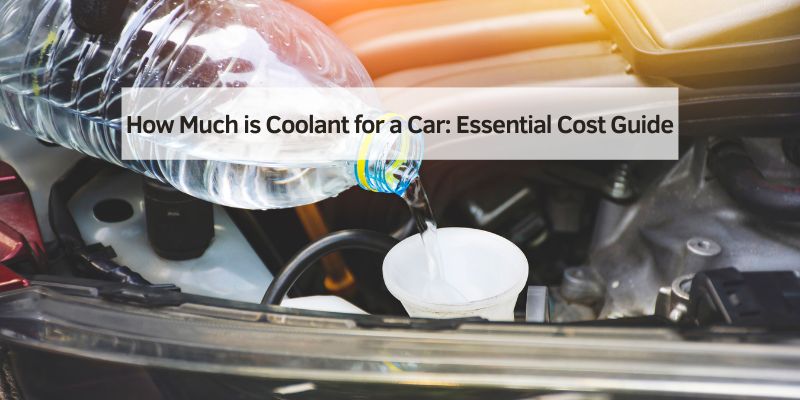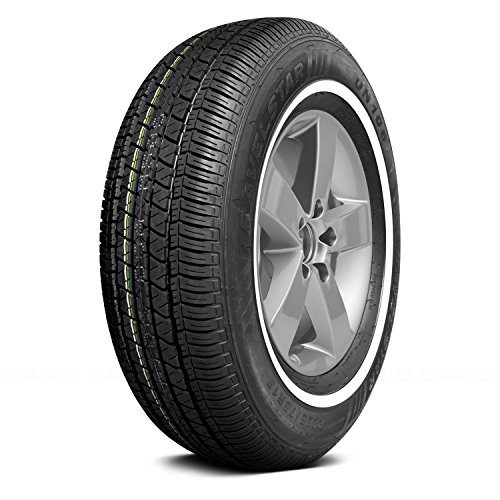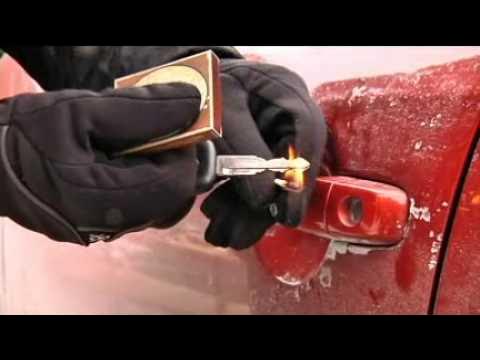How Much is Coolant for a Car: Essential Cost Guide
Coolant is vital for your car’s engine. It helps prevent overheating.
So, how much does coolant cost? The price of car coolant varies. It depends on the brand and type. Typically, a gallon of coolant ranges from $10 to $30. But why is coolant so important? Coolant, also known as antifreeze, keeps your engine at the right temperature.
It prevents freezing in winter and overheating in summer. Using the right coolant ensures your car runs smoothly. Investing in quality coolant can save you from expensive repairs. Let’s dive deeper into the factors that affect coolant prices. Understanding these can help you make an informed choice.
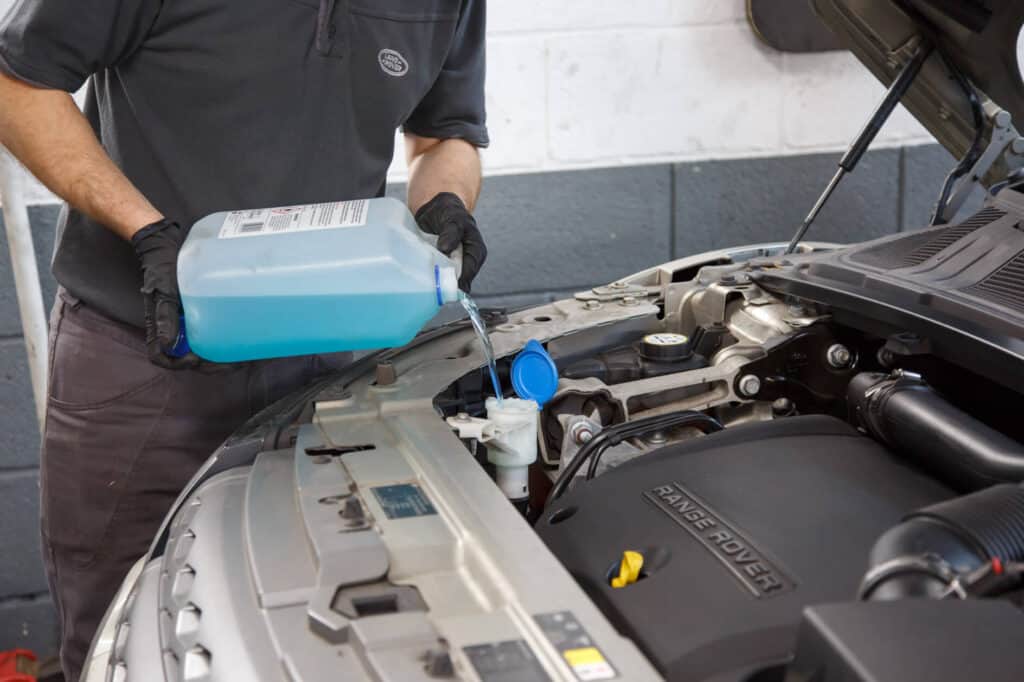
Credit: uchanics.ca
Coolant Basics
Car coolant is a special liquid. It helps keep your car engine cool. It is also called antifreeze. The coolant is mixed with water. This mix flows through the engine. It takes heat away from the engine. This stops the engine from getting too hot. Coolant also helps in cold weather. It stops the engine parts from freezing. It is very important for car health. Without it, the engine can get damaged easily. Always check your coolant level. Keep it filled up to avoid problems.
Coolant is like a superhero for your car. It fights both heat and cold. Engines get hot when they run. Coolant keeps them cool. It also protects engine parts. Metals can rust without coolant. Coolant stops this rust. It also helps keep the car running smoothly. Coolant also stops the engine from freezing in winter. Keeping the engine healthy is important. This is why coolant is a must. Checking coolant is easy. Make it a habit to check often.

Credit: www.jdpower.com
Types Of Coolant
Coolants come in two main types: traditional and modern. Traditional coolants have been around for a long time. These are usually bright green in color. They contain inorganic compounds. Modern coolants, on the other hand, are often orange or pink. They use organic acids instead. This helps prevent rust and wear. Modern coolants last longer in your car.
Coolants can also be organic or inorganic. Organic coolants are safe for the environment. They break down naturally. Inorganic coolants might be harmful if spilled. These coolants use chemicals like silicates and phosphates. Organic ones use acids like carboxylates. They keep engines clean and efficient. Always check your car’s manual to know which type to use.
Factors Affecting Coolant Cost
Different brands have different coolant prices. Some brands are more expensive. They promise better quality and longer life. Other brands are cheaper. They may not last as long. Choosing a brand affects the total cost. Always check your car’s manual. It may suggest a specific brand.
High-quality coolants protect engines better. They have special additives. These additives prevent rust and overheating. Cheaper coolants might lack these benefits. Spending more can mean less engine trouble. Always compare the ingredients in coolants. Choose wisely for your car’s health.
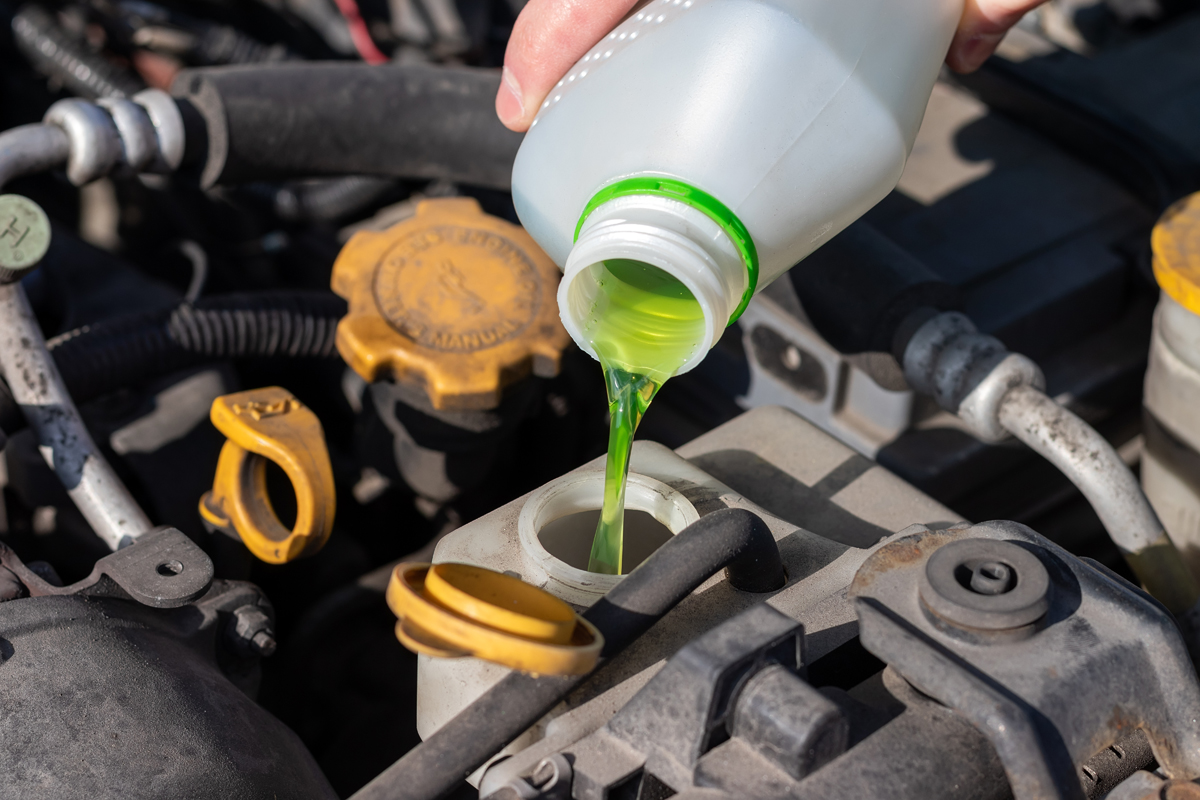
Credit: www.bridwellautocenter.com
Average Coolant Prices
Many budget coolant options are available for cars. Prices usually range from $10 to $20 per gallon. These coolants are basic but get the job done. They are good for older cars. They provide basic protection. Great for those on a budget. Make sure to check your car’s needs. Some cars need specific types.
Premium coolants offer better protection. Prices can range from $25 to $40 per gallon. These coolants have extra additives. They help in engine performance. They are ideal for newer cars. They provide better protection in harsh weather. Worth the extra cost for many car owners. Always check your car manual first. Some cars need specific coolants.
DIY Vs. Professional Coolant Replacement
Changing coolant by yourself is cheaper. You might spend $10 to $30. Coolant is the main cost. Tools are important too. A funnel and gloves are helpful. Look for discounts on coolant. Stores often have sales.
DIY saves money but takes time. Safety is key. Always use gloves. Follow instructions well. Mistakes can harm the engine. Be careful.
Professionals charge more for coolant change. Expect to pay $50 to $150. Labor is a big part of the cost. They have special tools. Professionals check for problems too. This adds to the cost.
Paying more means less worry. They handle everything. You’re paying for their skill. Peace of mind is worth it for some.
Coolant Cost-saving Tips
Buying coolant in bulk can save money. Large containers often cost less per liter. Always check the price per unit. Compare it with smaller bottles. Stores sometimes offer discounts for bulk buys. It is a good idea to have extra coolant. You may need it for future top-ups. Ensure you store it safely. Keep it in a cool, dry place. Avoid buying too much at once. Coolant can expire over time.
Watch out for seasonal discounts. Winter is a good time for deals. Many shops offer discounts during colder months. Summer can also bring sales. Check online stores for better prices. They often have special deals. Consider buying during sales events. Save extra money by using coupons. Look for promotions in local auto shops. Always compare prices before buying. You might find better deals elsewhere.
Coolant Maintenance Tips
Car coolant costs vary depending on the type and brand. Regular checks ensure optimal engine performance. Proper maintenance helps avoid costly repairs and keeps your car running smoothly. Always consult your vehicle’s manual for specific coolant recommendations.
When To Replace Coolant
Replace coolant every 30,000 to 50,000 miles. Check your car’s manual for exact miles. Old coolant can harm the engine. It loses its power to cool. Notice if the temperature gauge rises. It could mean the coolant is low or old.
Signs Of Coolant Issues
Check for leaks under the car. A sweet smell from the engine is a bad sign. It might mean a coolant leak. The engine overheating is another problem. If you see steam, stop the car. Let it cool down. Check the coolant level often. Make sure it’s between the lines. If not, add more.
Environmental Impact Of Coolants
Coolants can harm the planet. Traditional coolants have toxic chemicals. These chemicals pollute water and soil. Eco-friendly coolants are a better choice. They are made from biodegradable ingredients. These ingredients break down safely. This helps protect nature. Using these coolants can reduce harm to the earth. They are safe for animals and plants.
Never pour coolant on the ground. It can harm wildlife and plants. Always take used coolant to a recycling center. These centers know how to handle it safely. They keep toxins out of the environment. This helps keep our planet clean and safe. Be responsible with your old coolant.
Frequently Asked Questions
How Much Should Car Coolant Cost?
Car coolant typically costs between $10 and $25 per gallon. Prices vary by brand and type. Buying from auto parts stores or online platforms might offer discounts. Ensure compatibility with your vehicle by checking specifications. Regular maintenance helps prevent engine overheating and enhances performance.
Can I Just Add Coolant To My Car?
Yes, you can add coolant to your car. Ensure the engine is cool and use the correct type. Check your owner’s manual for specific instructions and ensure the coolant level is between the minimum and maximum marks. Regularly maintaining coolant levels prevents engine overheating and damage.
Can I Drive My Car With Low Coolant?
Driving with low coolant can damage your engine. It leads to overheating and costly repairs. Always check and refill coolant to maintain safe driving conditions.
How Much Coolant For My Car?
Check your car manual for coolant capacity. Most cars need between 2 to 3 gallons. Always verify with your vehicle’s specifications for accuracy. Regularly inspect coolant levels to ensure optimal engine performance. Use a 50/50 mix of coolant and water for effective cooling.
Proper coolant levels prevent overheating and engine damage.
Conclusion
Understanding the cost of car coolant helps plan your budget. Prices vary by brand and type. It’s essential to choose the right coolant for your vehicle. Don’t forget to check your owner’s manual. Regular maintenance keeps your engine running smoothly.
Avoid overheating and costly repairs. Shop wisely for the best deals. Compare prices online and in stores. Keep an eye on promotions or discounts. A small investment now saves big money later. Stay informed and make smart choices for your car’s health.
Always prioritize quality over price. Your car’s longevity depends on it.

